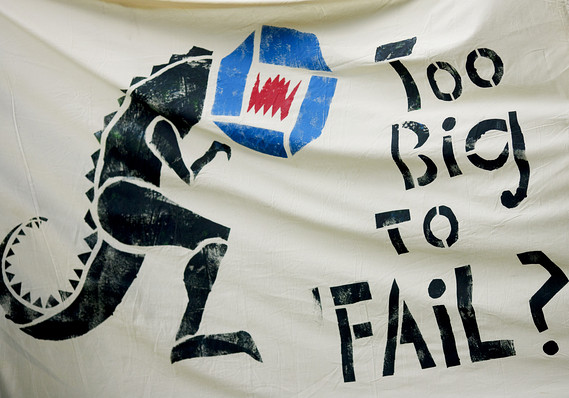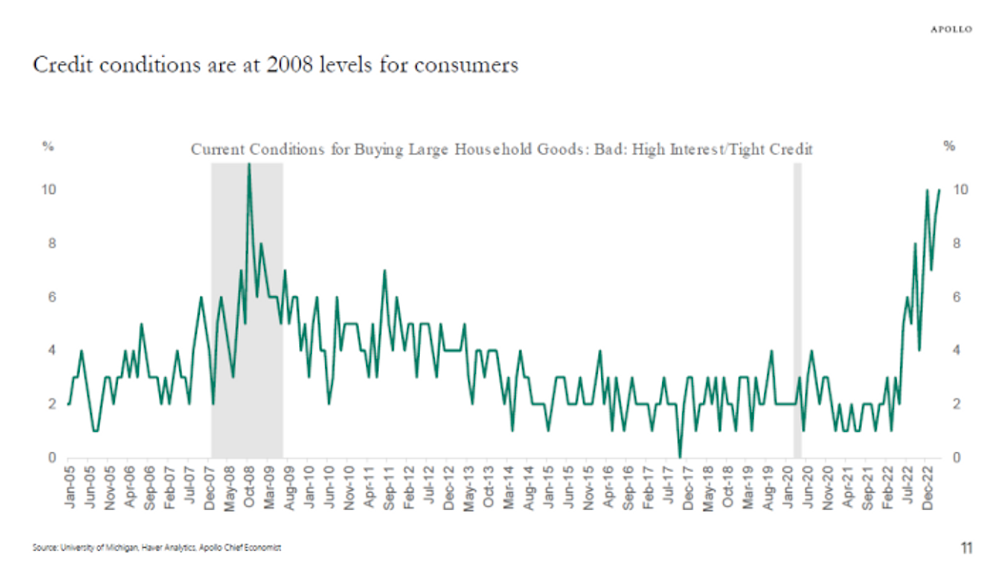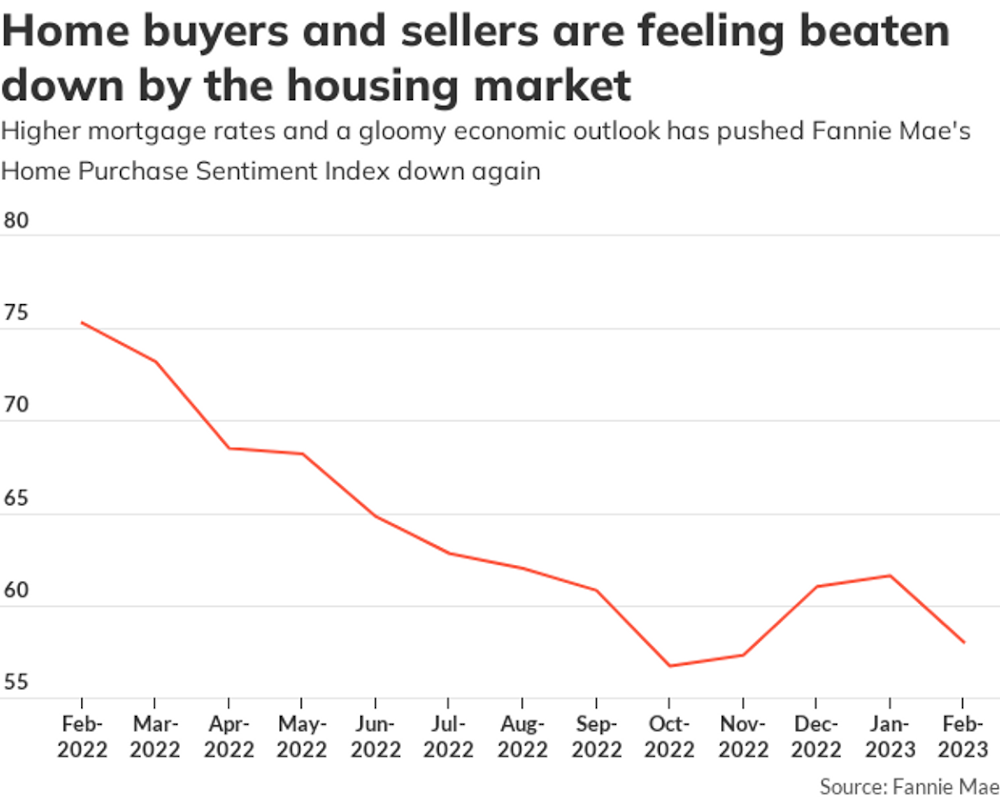MADRID
Bad loans held by Spanish banks rose to a fresh all-time high in September, as lenders still suffered the consequences of a two-year recession that has only just abated
Data released by the Bank of Spain showed that non-performing loans stood at 12.68% of all loans in September, up from 12.12% in August
Bad loans amounted to 187.83 billion euros ($253.5 billion), up from EUR180.94 billion in August
This increase was compounded by yet another decrease in total loans, to EUR1.48 trillion in September from EUR1.49 trillion in August, as lenders reduced the amount they lent to the economy
Spain's economy is expected to grow this quarter and over the next year, but bad loans are a lagging economic indicator that may take some time to reflect a better economic performance, economists say
Bad loans held by Spanish banks rose to a fresh all-time high in September, as lenders still suffered the consequences of a two-year recession that has only just abated
Data released by the Bank of Spain showed that non-performing loans stood at 12.68% of all loans in September, up from 12.12% in August
Bad loans amounted to 187.83 billion euros ($253.5 billion), up from EUR180.94 billion in August
This increase was compounded by yet another decrease in total loans, to EUR1.48 trillion in September from EUR1.49 trillion in August, as lenders reduced the amount they lent to the economy
Spain's economy is expected to grow this quarter and over the next year, but bad loans are a lagging economic indicator that may take some time to reflect a better economic performance, economists say




















5 comentarios:
By MarketWatch
VIENNA--Euro-zone inflation is "clearly" below the level that the European Central Bank believes is in line with its definition of price stability, European Central Bank Governing Council member Ewald Nowotny said at a conference here Monday.
"Inflation rates are clearly below the price stability level we set at the ECB," he said in opening remarks. The ECB targets an inflation rate of just below 2% over the medium term. Recent data showed annual inflation in the euro zone was only 0.7% in October.
Mr. Nowotny, who also heads Austria's National Bank, said the economic situation in Europe and the euro zone in particular recently "has started to improve." He said, however, that the improvement in the euro zone's economy is "not as strong as we would have expected some time ago."
The euro zone's economy grew at only a 0.1% quarterly pace in the third quarter, official data showed last week, dampening hopes about the speed of the euro zone's recovery from a historic recession.
Mr. Nowotny also lamented the fragmentation in European financial markets. The reversal in European financial integration "needs to be stopped," he said.
One example of fragmentation is higher borrowing rates for firms in euro-zone countries that are perceived as weaker, undermining the currency bloc's recovery.
Earlier this month, the ECB surprisingly cut its main interest rate to 0.25%. Markets are now looking for more detail on what other options the ECB could use as interest rates approach zero. The ECB's chief economist Peter Praet told The Wall Street Journal in an interview last week that the ECB could embark on outright asset purchases if necessary.
"If our mandate is at risk we are going to take all the measures that we think we should take to fulfill that mandate. That's a very clear signal," Mr. Praet said.
EUR
Ventas Industriales de Italia
(MoM) 0.10% 1.00%
Londres (MarketWatch)--las expectativas económicas en Alemania en noviembre subido al nivel más alto desde octubre de 2009, datos mostraron el martes, con el indicador de sentimiento económico de ZEW aumento de 1,8 puntos a 54,6 puntos. Los analistas esperaba una lectura de 55 puntos, según FactSet. "Las perspectivas económicas ligeramente mejorada para la zona euro podrían haber contribuido a este desarrollo", dijo Presidente de ZEW Clemens Fuest. Sin embargo, la evaluación del entorno económico actual para Alemania, empeoró ligeramente en noviembre, con el indicador de corriente-situación deslizándose 1 punto a 28,7 puntos.
By MarketWatch
VIENNA--The European Central Bank still has tools at its disposal to fight downside risks to price stability if they occur, including effectively charging banks for depositing overnight funds, ECB Executive Board member Joerg Asmussen told Austrian radio in an interview aired Tuesday.
"I said that we are not at the end of our monetary policy possibilities," said Mr. Asmussen in an interview with Austrian state radio Oe1. "If the inflation situation requires it, we can act again," he said.
"And to do so, one possible instrument would be the so-called negative deposit rate," he said. "But I would be very cautious with this instrument, but I don't want to completely exclude [its use]."
The comments come after the ECB surprised markets at its November meeting with a 25 basis point cut to its main refinancing rate, bringing it to a record low of 0.25%. The move was taken against a backdrop of very low inflation in the euro zone and an outlook for low inflation for a prolonged period.
As the ECB's main interest rate approaches zero, experts have sought out other measures that the central bank could take to fight very low inflation. The ECB's mandate is a medium-term inflation rate of just below 2%. The most recent inflation data put it at 0.7% on an annual basis, which Mr. Asmussen said was a justification for the ECB's recent rate move.
In the radio interview, Mr. Asmussen said it is "completely clear that it is too early for an exit" from accommodative policies. "We are at a different point in the economic cycle than say the USA. We've said we would keep our monetary policy accommodative as long as necessary."
Confianza del Consumidor de los Países Bajos -18.00 -25.00 -27.00
IPP de Estonia (MoM)
-0.70% 1.20%
EUR PPI Aleman (MoM)
-0.2% 0.1% 0.3%
Publicar un comentario